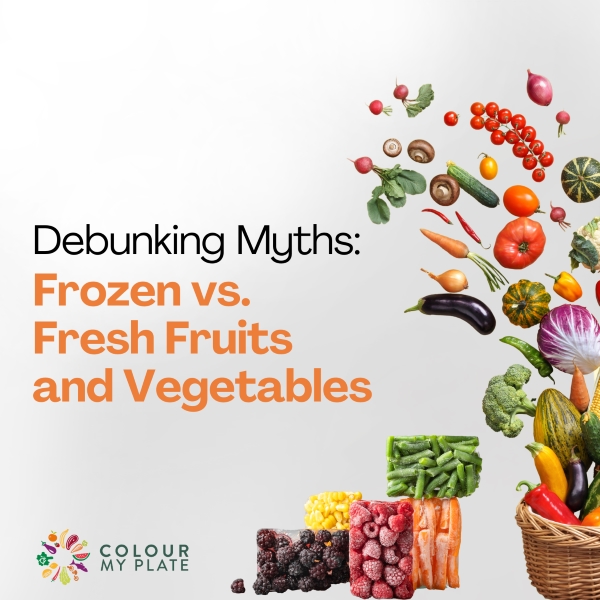
![]() 5 Jul 2024
5 Jul 2024
When it comes to choosing between frozen and fresh vegetables and fruits, many people believe that fresh is always the healthier option. It’s time to bust some myths and reveal the truth: frozen vegetables and fruits are not a lot less healthy than their fresh counterparts. In fact, they can be just as nutritious, if not more so, in certain circumstances. Let’s dive into why frozen produce deserves a place in your kitchen.
Contrary to popular belief, frozen vegetables and fruits retain their vitamins, nutrients, and minerals effectively. This is because they are typically flash-frozen at their peak ripeness, which locks in their nutritional value. Fresh produce, on the other hand, often travels long distances and may spend days or even weeks in transit and on store shelves before reaching your kitchen. During this time, they can lose some of their nutritional potency.
Frozen vegetables and fruits offer unparalleled convenience. They are pre-washed, pre-cut, and ready to cook, saving you time and effort in the kitchen. This makes it easier to incorporate a variety of vegetables and fruits into your meals, even on the busiest of days. Additionally, frozen produce has a longer shelf life, reducing food waste and ensuring you always have nutritious options on hand.
While frozen vegetables and fruits are generally nutritious, it’s important to be mindful of certain products that may contain added salt or sugar. These additives can diminish the health benefits of the produce. My advice is to always read the nutrition labels and choose products with minimal or no added ingredients. Opting for plain, unseasoned frozen vegetables and fruits will ensure you’re getting the most natural and healthful options available.
Frozen fruits are perfect for smoothies, providing a thick, frosty texture without the need for ice. Frozen vegetables are great for soups and stews, adding nutrients and flavor with minimal prep time.
Frozen vegetables can be quickly tossed into stir-fries or sautés, making it easy to whip up a healthy, colourful meal in minutes.
Frozen fruits can be used in baking, from muffins to pies, offering a burst of flavor and nutrition.
Keep frozen produce in airtight containers to prevent freezer burn and maintain their quality.
Frozen vegetables and fruits are a convenient, nutritious option that can easily be incorporated into your diet. They retain their vitamins, nutrients, and minerals well, making them a great alternative to fresh produce. Just be mindful of added salt and sugar by reading nutrition labels carefully. It’s time to set aside the myths and make frozen vegetables and fruits a staple in your kitchen. Your body and your busy schedule will thank you!

We noticed you haven't completed your delivery details.

Your message is sent